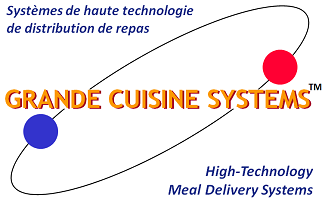Case Study - La Gourmande Central Food Production Unit
Case Study - La Gourmande Central Food Production Unit
A privately operated food unit owned by the Dutch Hospital Group Isala. This central food production unit is sited on an industrial estate at Zwolle south west Holland. It is run on a commercial basis and has been operational since September 2007. The unit delivers to 2 hospitals, 3 nursing homes, 1 rehabilitation centre and 3 cafeterias. Food production is based on home cooking (20%) and bought-in (80%). The investment is based upon long term customer contracts, with high flexibility in choice of food, delivery and logistics.
Carbo-Fresh System
Carbo-Fresh injection station including control panel, time controlled injection gun, exhaust system and CO2 security. One push easy to use buttons with preset timers. Injection gun with ergonomic, weightless spring connection. No special requirements needed for staff or working environment.

Transport
A truck arrives and takes its position at the loading zone. The truck is ambient and NOT refrigerated - resulting in huge cost savings. Loading of the carts is easy and comfortable [3 abreast with maximum 10 in a row]. Average time between loading and unloading at site is 45 minutes. The truck returns with empty/used meal carts. Removal of transport security bars takes place. Carts are unloaded to the cleansing zone.

Automatic Monitoring
Return of the used carts to the ’unclean’ zone adjacent to the wash-up area. Isecom system transmits a ’wake-up call’ to the carts modem and identification takes place. The alerted modus is activated and all data is transferred. Carts arrive in wash-up/cleaning area where another transmitter collects all data from the carts [in random order] and transfers the data automatically to the nearby office. A computer records and saves all the data. Any malfunctions, misuse or temperature problems being reported and highlighted on screen, including identification of carts and destinations.

Food is regenerated at the hospitals in Vitalis-Carbo single-tray carts and at the nursing homes in Serelis bulk-food ward service carts. Crockery, stainless steel pans, disposable foils and plastics are all used in service.


